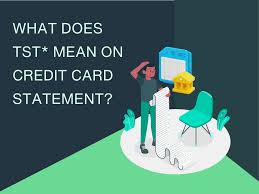Discover fail-safe strategies that enable you to get more of what you want from the people you negotiate with. Plus, earn 20 level 2 CPE credits.
Many win-win negotiations eCourse are difficult and stressful, but they don’t have to be. This course will teach you an effective process to reach a positive outcome that satisfies both sides.
1. Be honest
If you are honest with your prospects and clients, they are much more likely to trust you. This will make it more likely for them to do business with you again and recommend your services to others, increasing your potential for future revenue.
It is also important to be honest when negotiating. If you are not being truthful, your prospects will pick up on this and it will not be a good environment for negotiations.
It is also helpful to bring a large amount of data into your negotiations to prove your points. It can help to counteract the effects of “anchoring” where people give significant weight to the first number they hear, regardless of whether it is reasonable or not. By providing multiple options to your negotiating partners, they can choose the most valuable option for them.
2. Be flexible
Being flexible is essential when it comes to negotiating. When you’re able to suggest different solutions that can fit with their needs, it shows them that you’re willing to work within their constraints.
For example, if your employer says they can’t agree to flexible working hours, you might say that you have other alternative arrangements such as a job share or remote work. This will give them the opportunity to think about what you’re asking for and see if it can work for them.
Flexibility is important in a win-win negotiation because it ensures that you’re aiming to achieve what both parties want. It also helps to avoid a win-lose situation which can damage your relationship with the other person. This can be difficult as there will be times when one party will have to give more than the other.
3. Be empathetic
Whether you’re win-win negotiations eCourse with a customer or with fellow staff members, you need to be empathetic during negotiations. This can help you find a resolution that benefits both parties, which will likely result in repeat or returning business.
In addition, you should remain positive during a negotiation. This can set the tone for the whole conversation, allowing you to focus on finding a win-win solution.
You can also use what Chris Voss, a former lead international kidnapping negotiator for the FBI and 14-year veteran of the New York City Joint Terrorism Task Force, calls “forced empathy.” He suggests asking questions that prompt your counterpart to empathize with you. For example, a question such as “How am I supposed to do that?” forces your counterpart to think about their position from your perspective and might make them more willing to compromise.
4. Be assertive
While assertiveness can feel uncomfortable, it is a necessary aspect of negotiation. When you communicate your position confidently and without hostility, it allows the other party to focus on their own interests.
If you’re too passive, your counterpart might not take you seriously. On the other hand, if you’re overly aggressive, your counterpart will likely view you as someone who’s more interested in winning the argument than establishing a relationship of trust.
In a win-win scenario, both parties should be able to articulate their needs and wants. As a result, they’re more receptive to solutions that will allow them to accomplish both goals. For example, using a contingent agreement (a negotiated “if, then” promise aimed at reducing uncertainty about future events) might help you resolve an impasse.
5. Be clear
When negotiating, be clear about the needs and wants of both parties. It’s important to listen carefully to the other party’s stated position and their underlying interests, which may not be evident from their words.
It is also crucial to identify potential conflicts and work to resolve them. This will help you to achieve a win-win negotiation outcome.
A win-win negotiation is a process of finding resolutions that offer gains to both sides of the table. It is a different approach than a zero-sum negotiation, which has one side winning and the other losing. A zero-sum negotiation can damage relationships and reduce repeat business with clients, customers and other businesses. Win-win negotiations can be more beneficial for your business in the long run. If a prospect insists on terms that are not beneficial to your business, it is time to walk away from the conversation.





